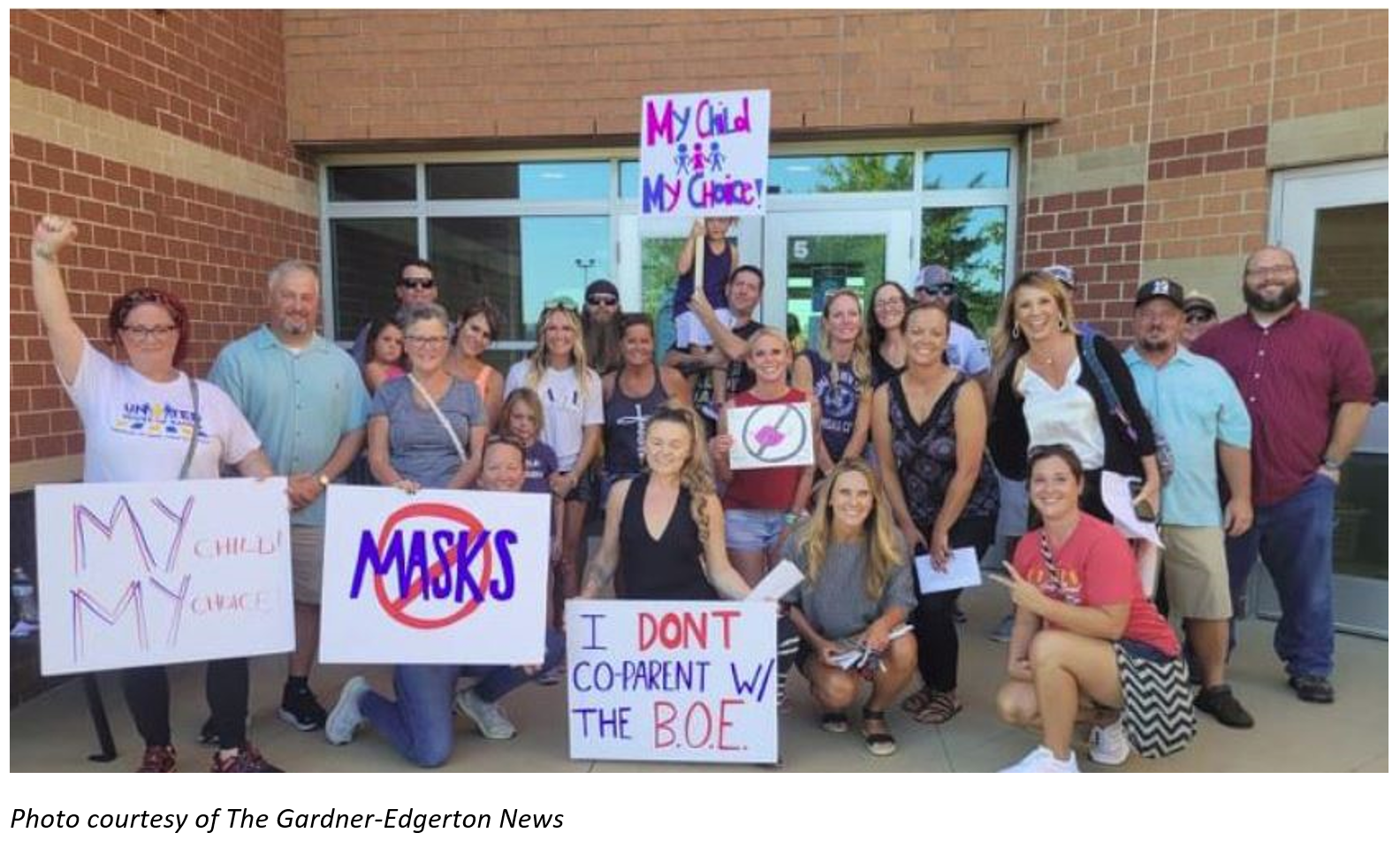Eighth-grader Ian Reimer has attended school in person for three days since March 12, 2020. The Gardner-Edgerton student started school online this year because the district didn’t offer an in-person learning option. He now attends school in-person a few days a week. For 334 days, he attended school virtually.
“Online schooling is not beneficial. Engaging discussions and in-depth learning experiences are gone,” he wrote to members of the Senate Education Committee. “My 11-year-old brother and I deserve a better education. All students deserve a better education. Kids are suffering both academically and mentally. Please be our voice.”
The committee listened to testimony on Senate Bill 235, legislation that would require all K-12 public school districts to offer an in-person learning option by March 26. Opponents of the proposal said the decision should be left to local school boards. They fretted that it could have long-lasting consequences.
“As we read this bill, it would continue in effect, indefinitely, into the future,” Mark Tallman, a lobbyist for the Kansas Association of School Boards, told the committee.
In written testimony, he explained the bill doesn’t make exceptions for future pandemics, other health and safety issues, or natural disasters.
Earlier this month, the House K-12 Budget Committee heard almost three hours of testimony from students, parents, and physicians about the failure of remote and hybrid learning.
Most K-12 schools plan to open for full-time in-person learning prior to the March 26 deadline in the bill. However, a handful of Kansas schools lack plans to open prior to that day. For instance, the Kansas City, Kansas, school district plans to reopen on April 5, but only for four days per week. Wednesdays will be virtual learning days. All grades are remote since the start of the school year.
Doors to Kansas schools closed for almost a year
Senate President Ty Masterson sponsored the mandatory in-person learning option bill. He told the committee that letters from parents and students drove him to draft the legislation.
“It’s been a year, almost a full year, that some of these kids haven’t been in school,” he told the committee. “…You need to have an option for these kids to be in school.”
Laura Klingensmith is the parent of a high school student in the Blue Valley School District. She said her daughter and friends are struggling with the hybrid education format because distractions and waning attention spans reduce their comprehension.
“K-12 is critical to the future success of our children,” she said. “A success our teacher unions and school boards are depriving the children from, in not offering a full, in-school option.”
However, Mark Desetti, a lobbyist for Kansas National Education Association, said the union wants kids to return to schools, but KNEA opposes the in-person learning mandate. He said any characterization to the contrary is false. Desetti testified against the proposal calling it a “one-size-fits-all approach.”
“We agree with this bill on one emotional level,” he submitted in written testimony. “We want our students to return to their school buildings face-to-face with their teachers. But where we differ is in how the decision to return is made.”
Most of the state’s 286 school districts offer some form of in-person learning, though some are using hybrid.
That poses equity problems, according to Masterson. In a series of lawsuits, school districts sued the state for additional funding saying funding at the time was inequitable. The resulting court decisions added billions to school district coffers. Masterson told the committee that the lawsuits demanded equity in terms of dollars and cents. The same actors are now arguing for inequity in terms of in-person learning.
“We do have schools that have been in person since August,” Masterson said. “Where’s the decision about equitable now? It’s always been about dollars. This is about opportunity for these kids.”


